Tristan
Has No Life - Lives on TB
I thought that the Chinese owned Dominion. Now Bill Gates owns Dominion? What the heck?
Assertions made on the internet don't come with a Guarantee of Accuracy.
I thought that the Chinese owned Dominion. Now Bill Gates owns Dominion? What the heck?
THEY DON'T!!??? I've probably read some incorrect stuff by now, wut do I do, call 911??Assertions made on the internet don't come with a Guarantee of Accuracy.



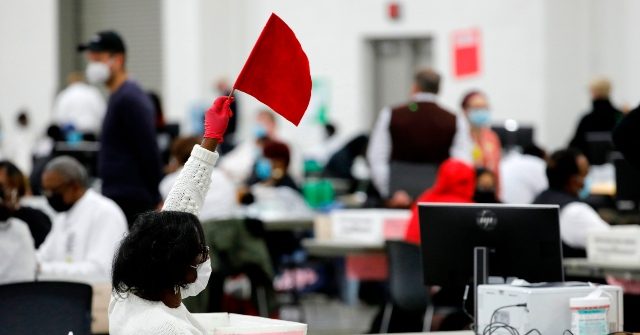
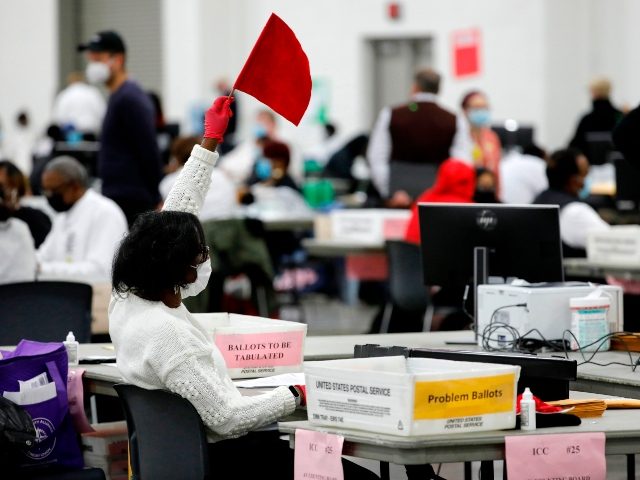
That raised the ire of state Rep. Matt Hall (R) and state Sen. Ed McBroom (R), chairmen of their respective oversight committees, who indicated the memo violated an order by House Speaker Lee Chatfield (R) and Senate Majority Leader Mike Shirkey (R) for election data to be preserved.The EPB software and associated files must be deleted from all devices by the seventh calendar day following the final canvass and certification of the election (November 30, 2020) unless a petition for recount has been filed and the recount has not been completed, a post-election audit is planned but has not yet been completed, or the deletion of the data has been stayed by an order of the court or the Secretary of State.
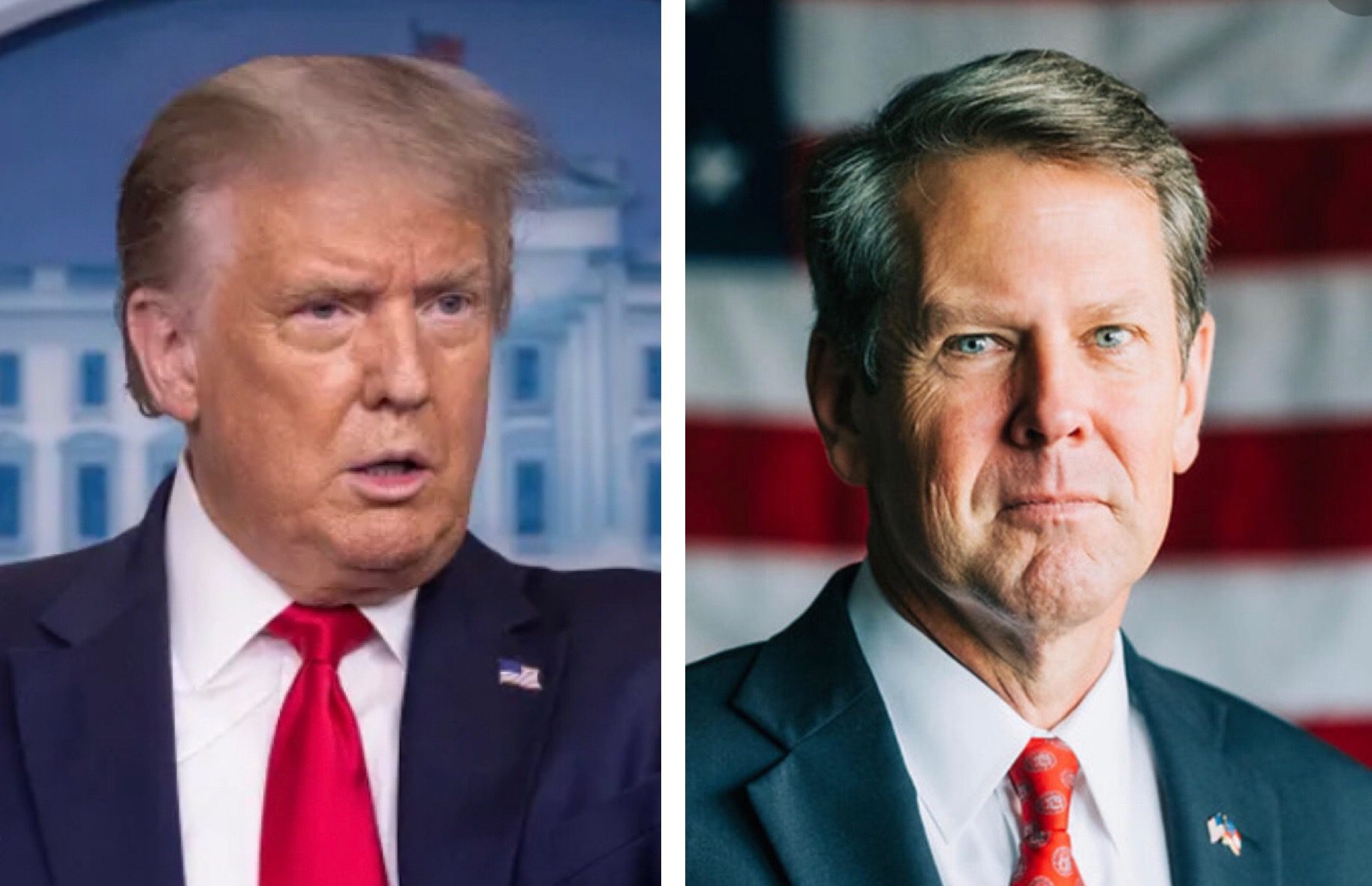
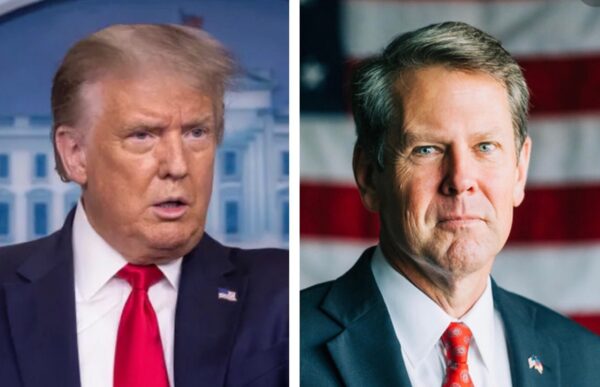
Trump responded to Kemp on Twitter, publicly asking why he will not call a special session.As I told the President this morning, I’ve publicly called for a signature audit three times (11/20, 11/24, 12/3) to restore confidence in our election process and to ensure that only legal votes are counted in Georgia. #gapol https://t.co/xdXrhf1vI2
— Brian Kemp (@BrianKempGA) December 5, 2020
Many are worried about the runoff election in Georgia and pressuring people to vote, despite the fact that the GOP candidates and governor have not been very supportive of Trump’s effort.But you never got the signature verification! Your people are refusing to do what you ask. What are they hiding? At least immediately ask for a Special Session of the Legislature. That you can easily, and immediately, do. #Transparency https://t.co/h73ZfjrDt3
— Donald J. Trump (@realDonaldTrump) December 5, 2020

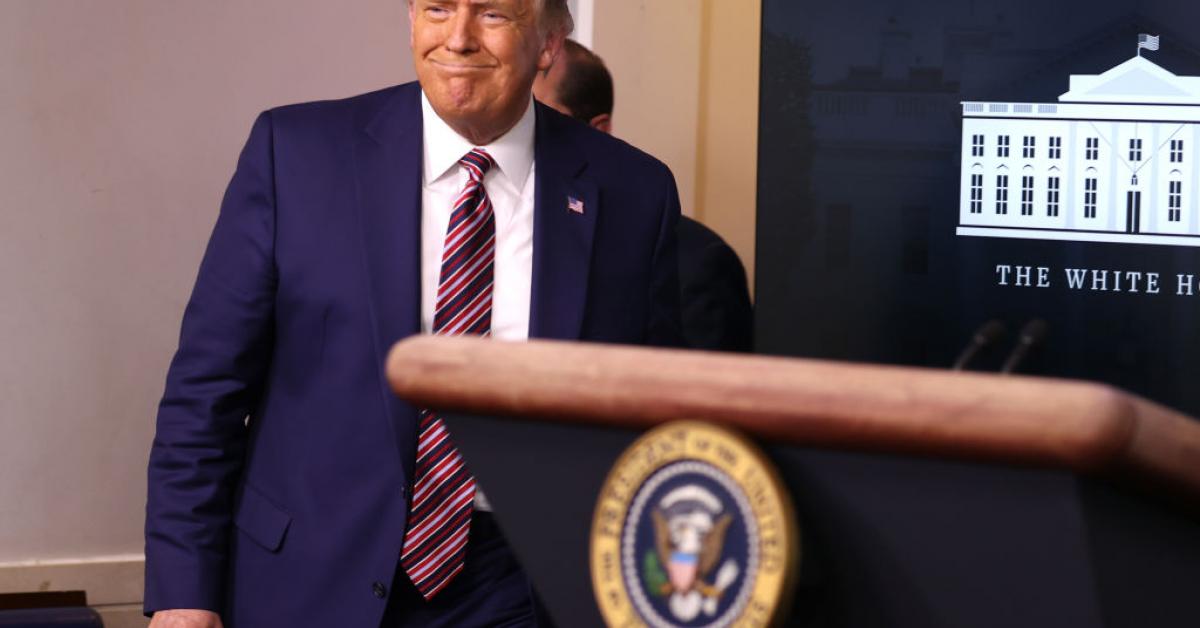
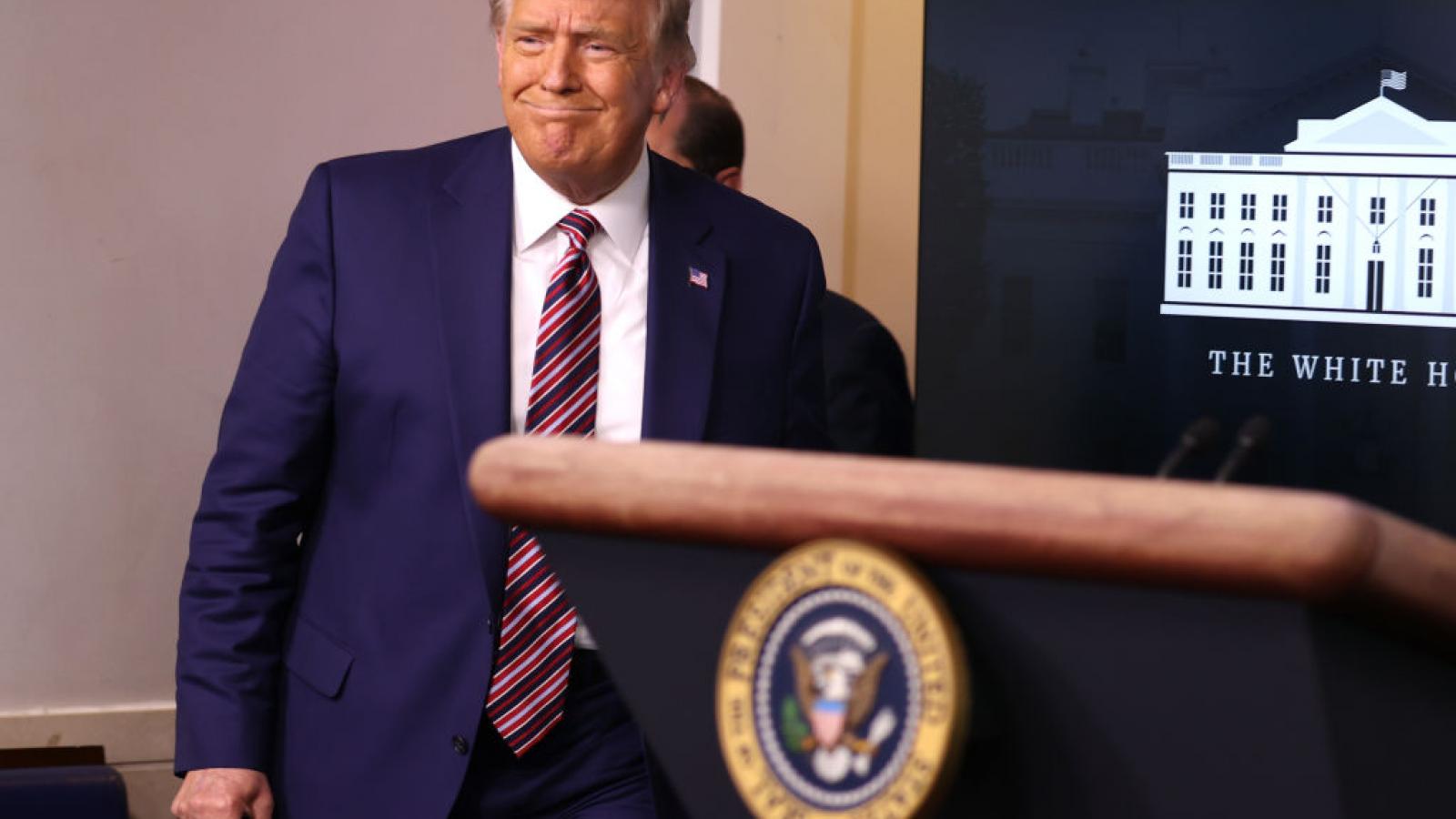


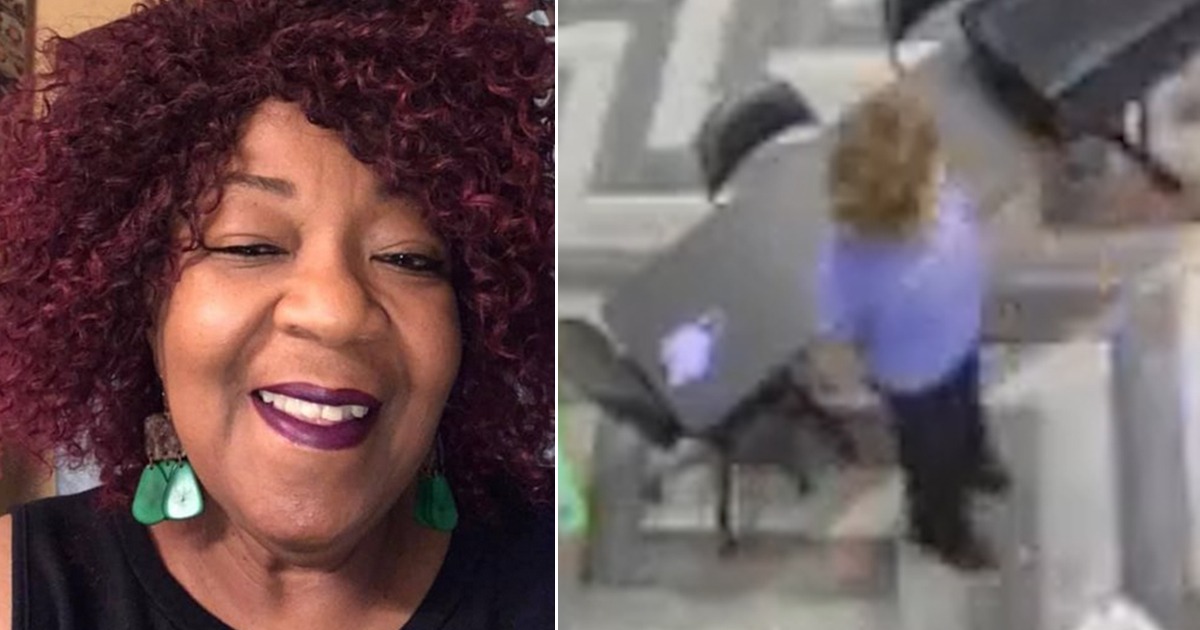
 nationalfile.com
nationalfile.com

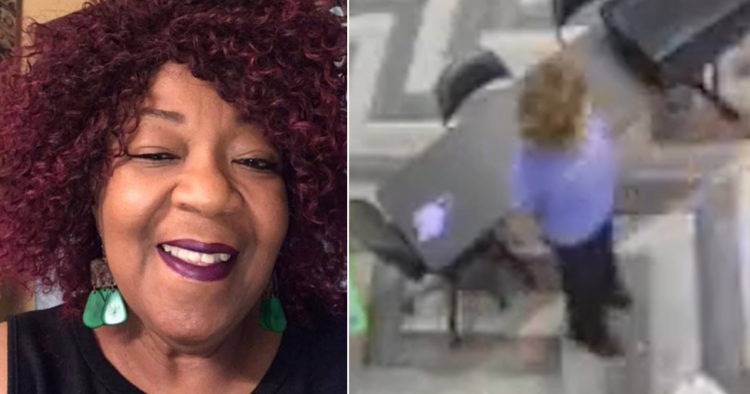
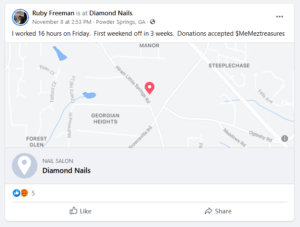
“The actions of Freeman’s daughter are clearly seen in the original video provided by the Trump campaign, and confirm her identity. In this first frame, Freeman’s daughter is seen to be the first vote counter to pull the suitcases from under the table. Her dreadlocks, with dark roots, are clearly visible.
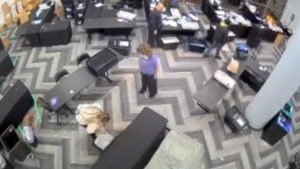
Freeman’s daughter is then seen to be the first person who actually removes the votes from the suitcases.
In this image, Freeman’s daughter appears to be issuing instructions to the other vote counters. They begin moving to the suitcases and ballots after she stands in this position and speaks.

Freeman’s daughter then retrieves a second suitcase full of ballots from underneath the table. Her mother stands nearby watching throughout this clip.

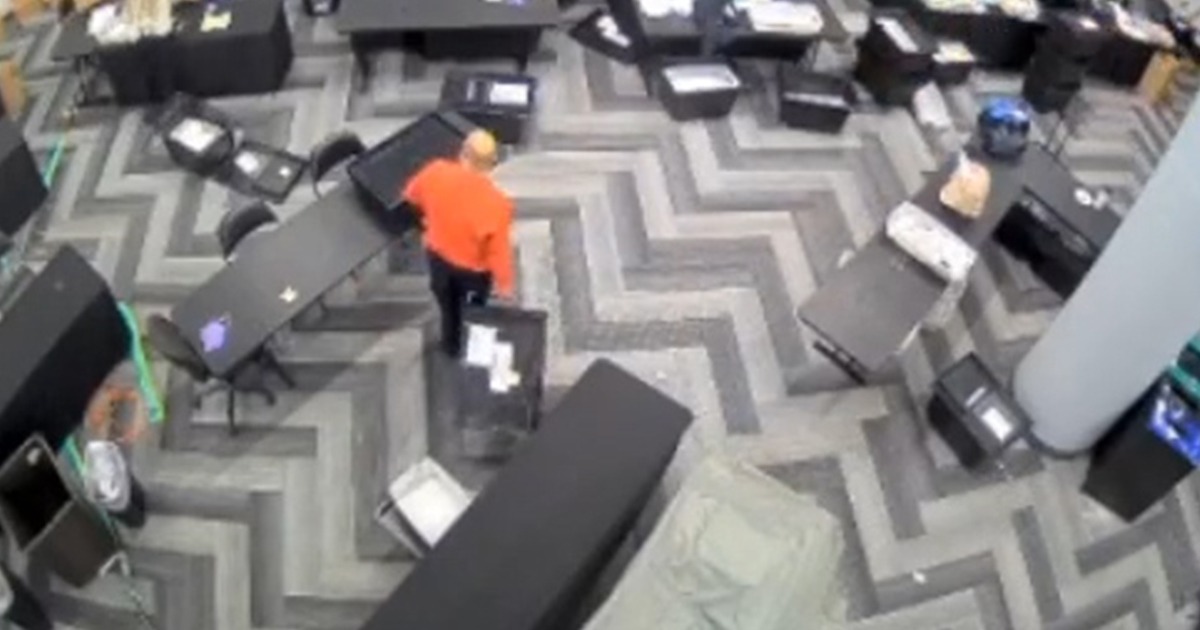
 nationalfile.com
nationalfile.com
Thus far, both Republican U.S. Senate candidates, Kelly Loeffler and David Purdue, have called for Raffensperger to resign from his position as Secretary of State immediately. However, Loeffler and Purdue have stopped short of calling for Georgia Gov. Brian Kemp, a Republican, to call a special session of the legislature so state legislators can address issues of election irregularity and determine whether the state’s 13 Electoral College votes should be assigned to President Donald Trump or to Joe Biden.Even had state monitors been present, the law still requires that ballot counting be open to partisan monitors and the public. But state monitors were not present, as the @GaSecofState now acknowledges and the video shows.
— David Shafer (@DavidShafer) December 3, 2020
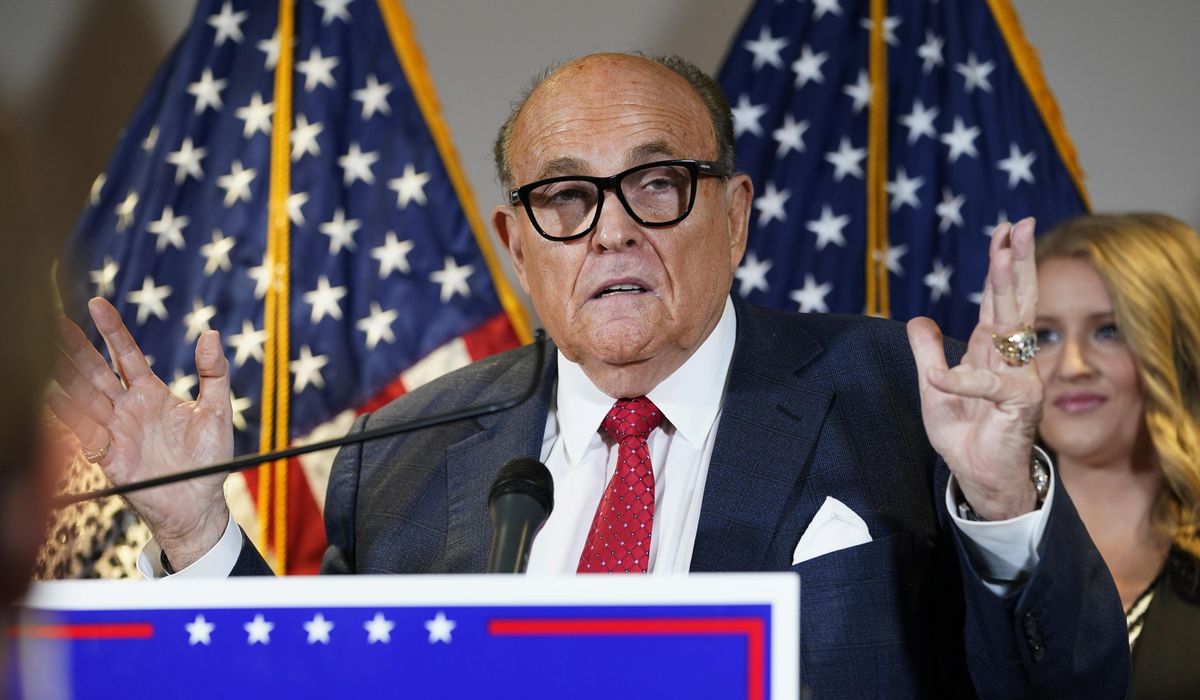
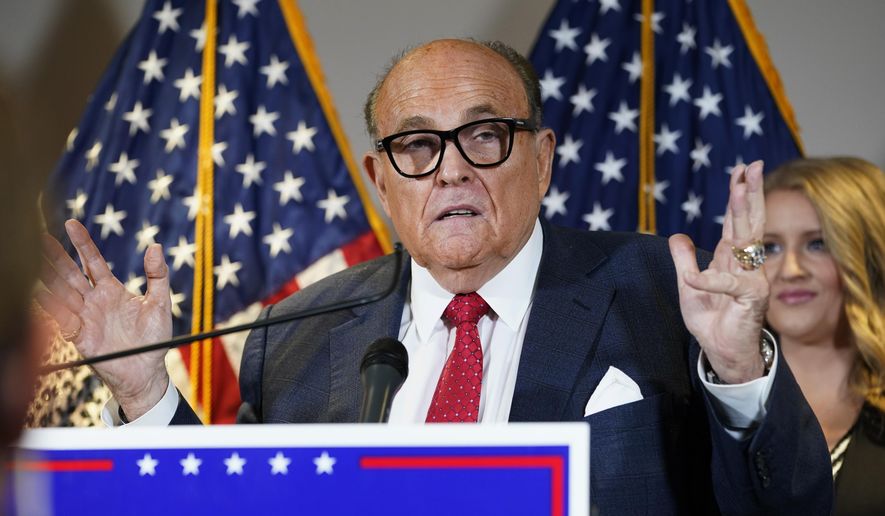

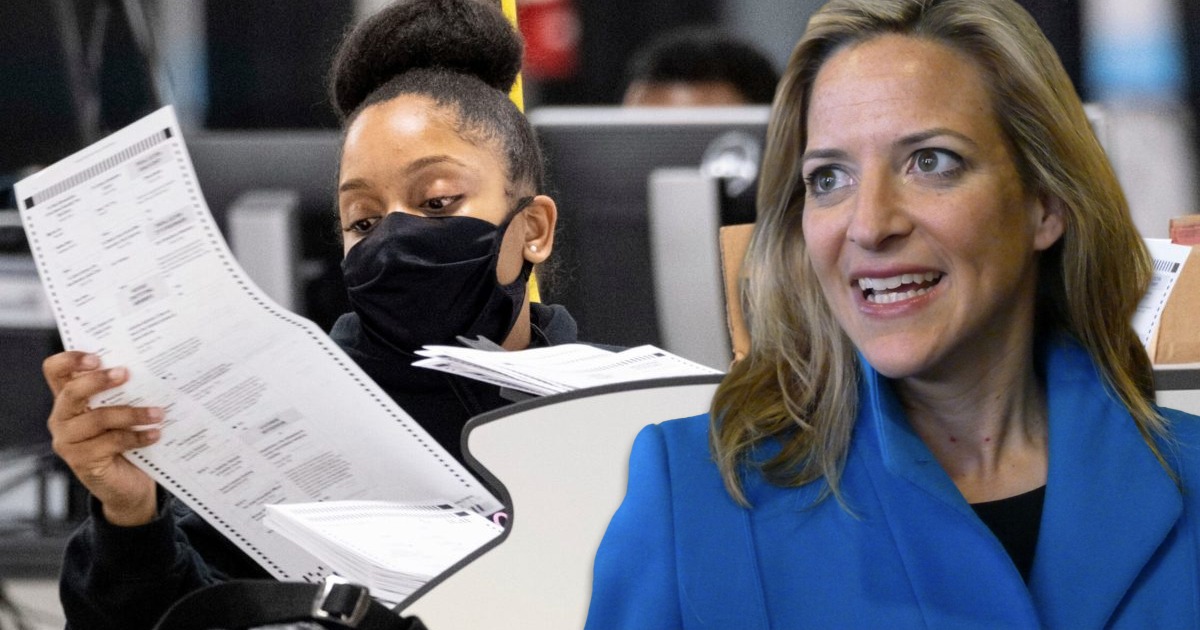
 nationalfile.com
nationalfile.com
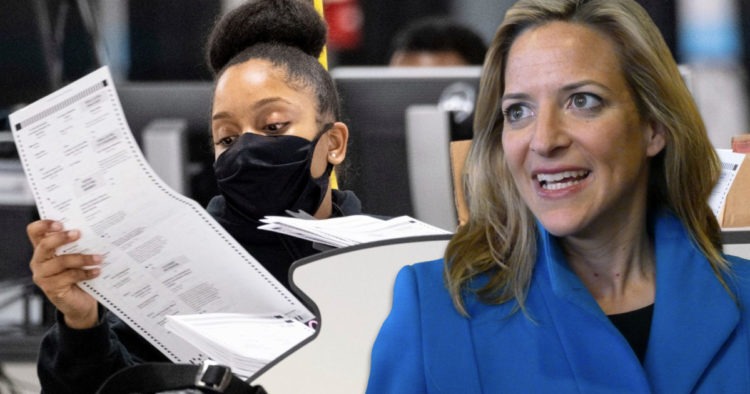
Cox was referring to a December 1, 2020, memo from the Michigan Bureau of Elections, an agency overseen by Benson’s office, that read, “[Electronic Poll Book] software and associated files must be deleted from all devices by the seventh calendar day following the final canvass and certification of the election (November 30, 2020) unless a petition for recount has been filed and the recount has not been completed, a post-election audit is planned but has not yet been completed, or the deletion of the data has been stayed by an order of the court or the Secretary of State.”Secretary Benson’s move to delete this data before an audit raises a serious question, what are the Democrats hiding? https://t.co/49umKx4kAV
— Laura Cox (@MIGOPChair) December 4, 2020
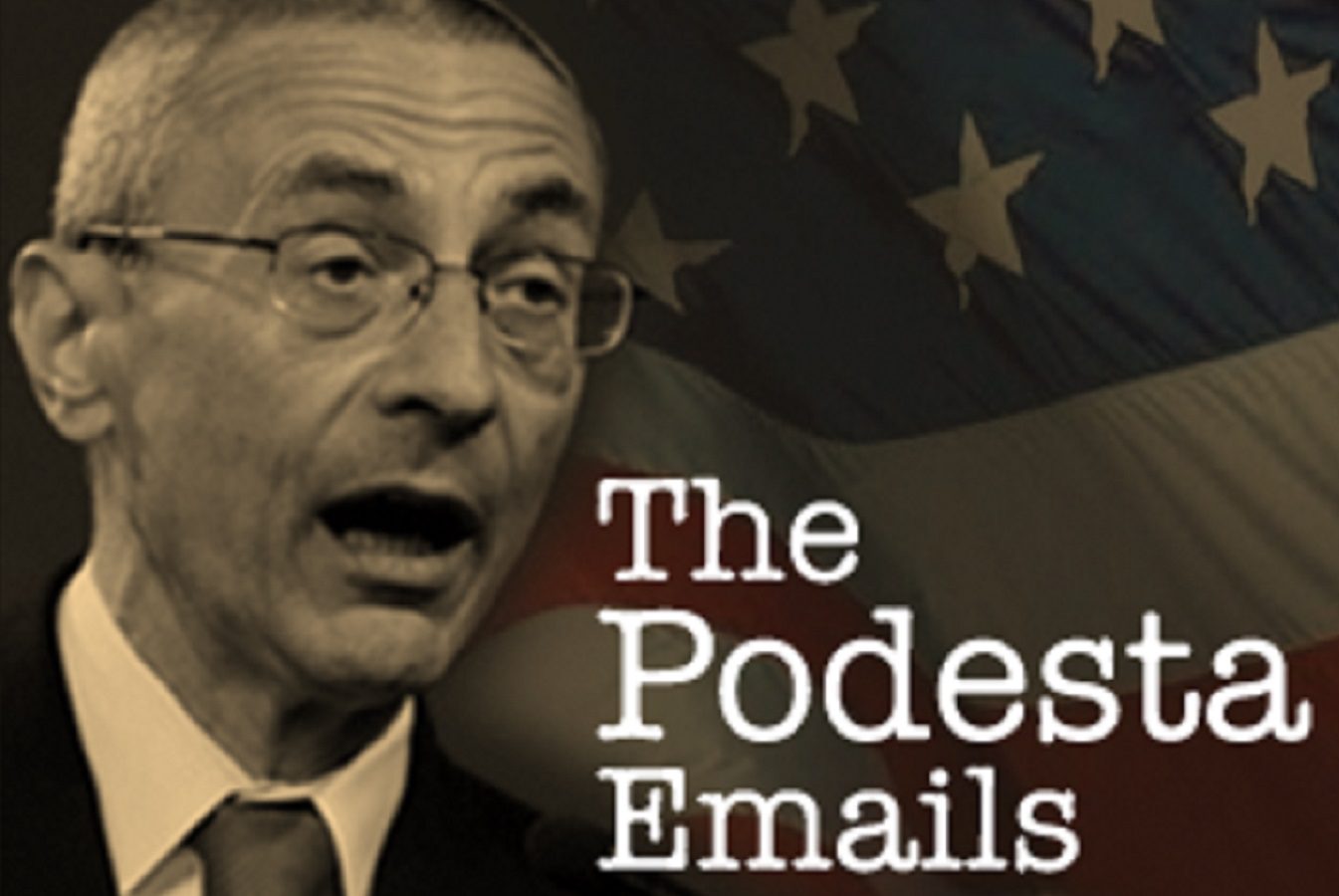
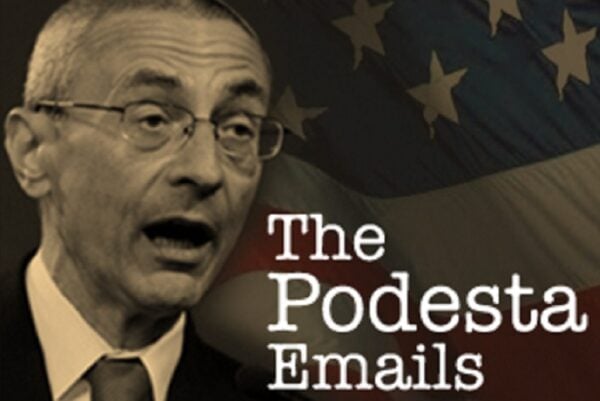


Shipwreckedcrew is a former DOJ lawyer that writes and tweets under this name to remain anonymous. I have been following him on Twitter for months and his analysis is always interesting.
Is There Another Scenario That Makes Justice Alito's Dec. 9 Response Date Meaningful in Different Way?
By Shipwreckedcrew | Dec 05, 2020 2:15 PM ET
AP Photo/J. Scott Applewhite
I’ve spent some time reading comments to this story I wrote yesterday as well as many other legal analysts’ views on what — if anything — can be divined from the fact that Justice Samuel Alito ordered the State of Pennsylvania and other defendants to respond by December 9 to the action filed by GOP Congressman Mike Kelly seeking to declare unlawful the “no excuse” mail-in voting scheme used in the November election.
In my story yesterday I noted that the due date for the opposition papers is one day after the last day on which the Pennsylvania electors could be named based on the election results as certified by the Secretary of the Commonwealth and that there is currently no court order which prevents that from happening. As some have noted, the end of the “safe harbor” period — December 8 — is simply a date established by Congress by which a state benefits if all election disputes are settled and the outcome is certified by the state at least six days prior to the meeting of the Electoral College. The states are not required to meet this deadline, it only provides that certain challenges to a state’s naming of electors will not be entertained if the state does meet the deadline.
What many have correctly noted is that this “safe harbor” provision has no legal effect on what the Supreme Court can do if it were to find merit in any election challenge it chooses to hear. Until the Electoral College actually meets and votes, the Court possesses the authority to issue an injunction preventing the electors from any particular state from being able to lawfully participate on the basis that the manner of their selection was legally invalid.
The Court itself gave this “safe harbor” provision notoriety in Bush v. Gore when it used the statute as a basis to not send the matter back to the Supreme Court of Florida so that Court could address the flaws in the statewide “recount” that it had ordered to take place. The lack of consistent statewide standards for executing that recount was the basis upon which the US Supreme Court halted the Florida Court-ordered recount.
The US Supreme Court blocked the recount from resuming with reformulated standards because the Court issued its decision on the last day of the “Safe Harbor” period, and the Court found that the Florida Legislature had expressed an intention to take advantage of that provision in the Florida election statute. As such, there was no time for the Florida Supreme Court to remedy its errors — even though the Electoral College meeting was still a week away. Many legal commentators at the time decried that justification as simply an excuse put forward by the US Supreme Court to stop any further recount from taking place in Florida that might again switch the outcome of the race.
Given the actual purpose of the Dec. 8 “safe harbor” deadline, the fact that Justice Alito has set the date for the opposition papers to be filed as of December 9 is “noteworthy” but not necessarily impactful on what the Court can still do.
Most of the legal pundits on the left have been dismissive of the claims made in the lawsuit brought by Kelly and predicted that the matter would be summarily dismissed. They all conflate the extreme nature of the remedy sought with the underlying merits of the case as their reason for rejecting the merits. I have yet to find a meaningful argument advanced in opposition to Kelly’s claims on the merits — the opposition seems only to focus on the prospect of “disenfranchising” millions of voters who cast votes in a manner that they understood to be lawful based on what they were told by the state and county officials.
Other than remaining “hopeful” in a metaphysical sense, is there anything that might be read into the fact that Justice Alito seems to have given the state defendants an inordinately long amount of time to respond to an Emergency Application for an injunction under the circumstances?
Maybe it’s to give the Court more time.
Maybe it’s to lay the groundwork for use of a “MOAB” (“Mother of all Bombs”) remedy with respect to Pennsylvania. While it might be “shocking” to the political system in 2020, it might also be the “electro-shock paddles to the chest” that the political branches need to shake themselves out of their current descent into open warfare with respect to the ground rules for conducting elections.
This supposition begins with the premise that inside SCOTUS there is a view that the Pennsylvania Supreme Court has made itself into little more than an extension of the partisan political machine run by the Pennsylvania Democrat Party in the large metropolitan areas of the state. Its only judicial philosophy seems to be to promote the positions advanced by Democrats and defeat the positions advanced by Republicans. In 2020 this partisanship crossed over into the realm of how elections are conducted and threatens to eliminate the possibility of fair electoral outcomes in a state with a closely divided electorate.
How should the US Supreme Court respond to a State Supreme Court that has allowed itself to become captured by political interests — a state that elects the members of the Court, which means that by manipulating the election process the Court’s composition in favor of one political party will become a self-perpetuating reality.
One way to do that would be to “discipline” the electorate of the state and make them recognize what has been done in their name.
Professor William Jacobson who created the Legal Insurrection blog (highly recommended by me) made an interesting comment yesterday in taking a contrarian view on Justice Alito’s Dec. 9 deadline. He noted that Justice Alito and the Court do not need the briefing from state defendants to respond to the request for injunctive relief made by the Plaintiffs in the Kelly case. These kinds of applications are made to the Court by the dozens throughout the year, and nearly all of them are denied because of the very small likelihood of the Court taking the case to which they are attached, and the lower court decision is going to stand.
If Justice Alito was intending to not take any meaningful action here that might impact the election results he could have simply denied the emergency application, noting that it was not a decision on the merits, and the Plaintiffs were free to file a petition for review in the ordinary course — they just would not get the retrospective relief they were seeking as the election would likely be settled before the Court would act on such a petition.
By not doing so, Justice Alito has left open the possibility that the Court could act in some fashion prior to the meeting of the Electoral College.
A second aspect of Prof. Jacobson’s comment yesterday was to point out the fact that the Court does not need the benefit of enlightenment by the parties’ counsel on the questions presented. The Justices of the Court, their law clerks, and legal staff of the Court are more than capable of analyzing all aspects of the legal issues raised by the Kelly complaint, and the Penn. Supreme Court’s resort to using the doctrine of “laches” to avoid dealing with the complaint on the merits. The Penn. Supreme Court did them a favor by preventing any “record” to be created in the lower state courts which would require review by the Supreme Court. By acting as it did, the Penn. Supreme Court has limited the needed review to the question of the constitutionality of Act 77, and the application of the doctrine of “laches” to dismiss the action.
It is almost certain that Justice Alito knows exactly what the outcome of a vote of the full court will be on the Emergency Application if it was publicly announced today.
The Court has the authority to treat the Emergency Application as a “petition for certiorari” — a request for a determination of the matter on the merits rather than just a request for injunctive relief — and issue an Order upholding or reversing the decision of the Penn. Supreme Court. If such a circumstance exists, where there is a sentiment among a majority of the Court to determine the Kelly case on the merits, it would be imperative to allow the opposing side to brief the issues — and to not give them 24-48 hours to do so. This would explain why Justice Alito gave the state defendants one week to submit their opposition. Given the nature of the issues and the limited record below, a week is far more time than is necessary for such work to be performed.
The opposition is likely meaningless in the sense that the Justices already know what their views are on the issues, but “notice and opportunity to be heard” are the foundations of “due process”. By giving the state until Dec. 9 to respond, Justice Alito has cut off a “notice and opportunity” complaint from the state defendants.
If that is where the outcome is headed, we then have the question of which Justice would be responsible for writing an opinion for the majority. If the Chief Justice voted with the majority, he would decide who writes the opinion. If the Chief Justice were to vote with the minority — which based on his recent comments seems likely — and Justice Thomas is in the majority, then Justice Thomas would decide who would write the opinion.
Has there ever been a Justice of the Supreme Court with more cause to castigate the political parties and various political branches of the federal and state governments for their politicization of the judiciary? Is the Pennsylvania Supreme Court and its conduct not the epitome of the politicization of the judiciary?
I can certainly envision this as the moment in history where Justice Thomas stepped forward to say “Enough!”
What might that look like? What outcome could five (or more) Justices impose on the country in order for the populace to wake up and recognize the path we are on with our election processes having been turned into battlegrounds themselves?
I’m not 100% certain in how this would play out beyond a Court decision — maybe that will be my next research project — but let’s suppose that the Court rules in favor of the Kelly Plaintiffs on the merits, and invalidates the “no excuse” mail-in voting scheme imposed on the Pennsylvania electorate without their consent as is required under the Pennsylvania State Constitution. What remedy other than simply declaring the 2.3 million mailed-in votes invalid might the Court impose? That would be a “naked” decision by 5 or more Justices to change the winner of Pennsylvania’s 20 electoral votes — a step I think the Court would be highly reluctant to take, as history would always reflect that it was the Court who chose the winner through its jurisprudence.
But, something I think the Court could bring itself to do is to simply declare the Pennsylvania contest voided — and to do so at such a time that prevents Pennsylvania from naming any electors to the Electoral College. That would shut the state out of the 2020 process of electing the next President.
This would be justified by the simple fact that the Pennsylvania General Assembly and the elected officials of the Pennsylvania State Government are all to blame for the manner in which the election was conducted. They violated the rights of all Pennsylvania electors who were entitled to vote on the Constitutional Amendment adopting “no excuse” mail-in voting by imposing that scheme through Act 77 in violation of the Constitution.
It might seem incongruent to “punish” the Nov. 2020 electorate on the basis that the same electorate’s rights were violated by the Legislature and state officials, but the fact of the matter is that all those officials acted in the name of the electorate because they were all put in the position by the electorate that sent them to office in the first place.
Basically, the Legislature and state officials are all “your rascals” so “you” — Pennsylvania — are responsible for the misdeeds they have committed in your name. The original misdeed in this instance was implementing Act 77 in violation of the State’s Constitution, and everything that came after that is tainted as a result.
As I said, preventing Pennsylvania from naming electors and being involved in the 2020 Electoral College, is the MOAB of all outcomes. But it does not put the Court in the position of “selecting” a winner in Pennsylvania, and it places responsibility where it belongs. It is then up to the People of Pennsylvania to decide how to respond to the Legislature and State Officials who caused the mess.
That would be a lesson the remaining 49 states could greatly benefit from.
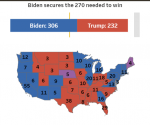
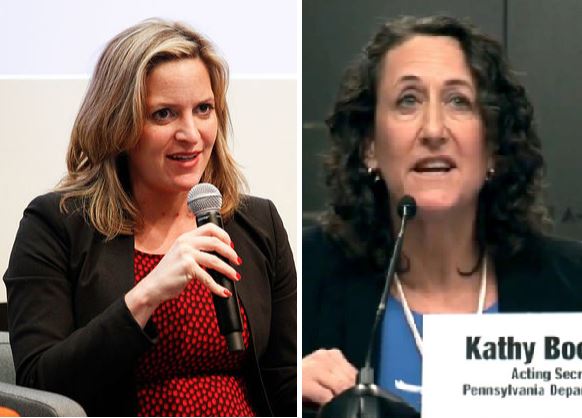



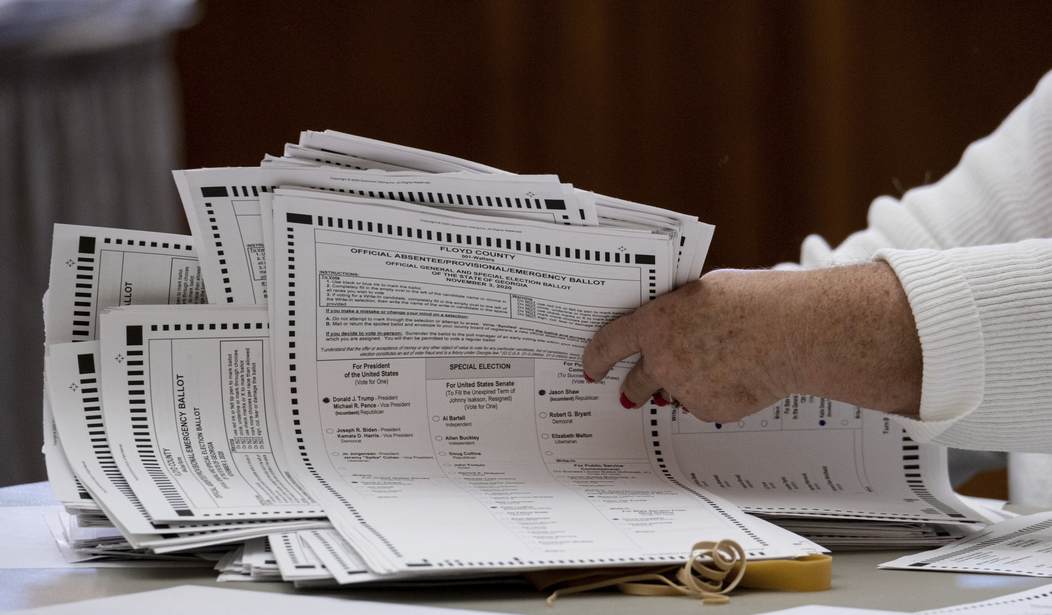
So, in fact, there are actually three elements to the doctrine, the first two of which are often conflated — first, neglect on the part of the plaintiff in not asserting the right; second, a lapse of time; and third, circumstances showing prejudice to the adverse party.The defense of laches “requires proof of (1) lack of diligence by the party against whom the defense is asserted, and (2) prejudice to the party asserting the defense.” “`Doctrine of laches,’ is based upon maxim that equity aids the vigilant and not those who slumber on their rights. It is defined as neglect to assert a right or claim which, taken together with lapse of time and other circumstances causing prejudice to the adverse party, operates as bar in court of equity”).
Let’s stop here. I always enjoy reading the cases cited in support of key legal points made by a party, and Stilp is the first key citation to authority made by the Court in its decision. So, what else did the Court say in Stilp?Upon consideration of the parties’ filings in Commonwealth Court, we hereby dismiss the petition for review with prejudice based upon Petitioners’ failure to file their facial constitutional challenge in a timely manner. Petitioners’ challenge violates the doctrine of laches given their complete failure to act with due diligence in commencing their facial constitutional challenge, which was ascertainable upon Act 77’s enactment. It is well-established that “[l]aches is an equitable doctrine that bars relief when a complaining party is guilty of want of due diligence in failing to promptly institute an action to the prejudice of another.” Stilp v. Hafer, 718 A.2d 290, 292 (Pa. 1998).
Consider for a moment the “Appellees” in that case — Tom Ridge, Governor of Pennsylania, and the State of Pennsylvania.Appellants argue that the Commonwealth Court erred in granting summary judgment based upon laches because the doctrine may not be used to defeat a constitutional challenge to a statute. While Appellees concede that laches may not bar a constitutional challenge to the substance of a statute, they maintain that laches may bar a challenge like the one in this case, which only attacks the process by which the statute at issue was enacted eight years ago.
Well, the Governor and State of Pennsylvania just argued to the Pennsylvania Supreme Court in the Kelly case, and the Supreme Court agreed, that laches should bar a constitutional challenge to the substance of a statute. That is the exact opposite of what the Governor and State “conceded” 22 years ago. So much for legal and political ethics.“Appellees concede that laches may not bar a constitutional challenge to the substance of a statute.“
Whaaa??? What???Respondents contend that the petitioner unreasonably failed to commence this action for six and one-half months from the time he had actual or constructive notice of his claim…. In the instant case, petitioner had not only to discover the facts surrounding his claim, but also to ascertain the legal consequences of those facts. It is asserted petitioner, as an attorney, is deemed to be familiar with the mandate of the Constitution of this Commonwealth, and thus should have been immediately aware of his claim. The candidates-respondents, however, are also lawyers and are candidates for offices on the two highest courts in this jurisdiction, and should be charged with the knowledge of the Constitution as well. Respondents are requesting that this Court use its equitable powers to deny petitioner relief; yet, they have made no effort to seek judicial approval of the scheduled election. He who seeks equity must do equity. Mazer v. Sargent Electric Co., 407 Pa. 169, 180 A.2d 63 (1962), Hartman v. Cohn, 350 Pa. 41, 38 A.2d 22 (1944). To find that petitioner was not duly diligent in pursuing his claim would require this Court to ignore the fact that respondents failed to ascertain the same facts and legal consequences and failed to diligently pursue any possible action. We cannot say that respondents who seek to invoke this equitable defense have acted equitably in this manner. In light of the foregoing, we cannot say that petitioner failed to pursue this matter diligently.
I would what they consider "statistically significant"? 1000 / 10,000 ?
Robert Barnes
@Barnes_Law
A court ordered statistically significant sample of Arizona's mail in ballots found 11% of the accepted ballots did NOT match according to the Democrats' own expert. That is thirty times more illegal ballots than the margin of victory. Georgia, Pennsylvania & Nevada likely worse.
4:12 PM · Dec 5, 2020
We all know lawyers talk out of both sides of their butt hole.
Has the Penn Supreme Court Invited Scrutiny and Rebuke By Relying on "Laches" to Dismiss an Incovenient Complaint?
Laches was used as an excuse to preserve the partisan outcome that the PA Supreme Court liked.redstate.com
Has the Penn Supreme Court Invited Scrutiny and Rebuke By Relying on "Laches" to Dismiss an Incovenient Complaint?
By Shipwreckedcrew | Dec 01, 2020 8:00 AM ET
Late in the day on Saturday the Pennsylvania Supreme Court dismissed with prejudice the complaint filed by GOP Congressman Mike Kelly, failed GOP candidate Sean Parnell, and others, claiming that the “no excuse” mail-in ballot option created by the Pennsylvania legislature in 2019 violated Section 14 of Pennsylvania Constitution. That Section limits “absentee” voting to four narrow categories of “absent electors”. The complaint alleged that because Section 14 is itself a constitutional limit on exceptions to in-person voting, the no-excuse mail-in voting statute worked as a de facto amendment to the Pennsylvania Constitution without going through the required process for amending the Constitution.
Without addressing the merits of the complaint in any fashion, the Court ordered the case dismissed on the equitable grounds of “laches”, finding that the “facial” challenge to the constitutionality of Act 77, the law which created no-excuse mail-in balloting, was a matter the plaintiffs could have brought the time the Act was passed. The Court found a lack of diligence from the fact that they did nothing for more than a year, during which time both a primary and general election took place in which “no-excuse” mail-in voting procedures were employed.
I’m going to make a point here, at the outset, that is somewhat out of place because I want the readers to keep it in mind as they read through the remainder of this article.
The Kelly complaint alleges that Act 77 changed the voting process in Pennsylvania in a manner that amended the Pennsylvania Constitution, without going through the process for making amendments to the Constitution as set forth therein.
The opponents of the Kelly complaint — joined by the Pennsylvania Supreme Court in dismissing the complaint — are possessed by the issue of whether millions of Pennsylvania electors will be “disenfranchised if “no-excuse” absentee voting is declared to be invalid due to the complaint.
What I have not seen commented on — and that failure is why I put this issue here at the top — is that one of the approvals required in the process for amending the Pennsylvania Constitution is that proposed Amendments must receive a majority vote of Pennsylvania electors in a general election.
The voters of Pennsylvania were entitled to have a say in whether the Constitution’s provisions regarding elections and voting should be amended. The General Assembly, Governor, Secretary of the Commonwealth, and County Boards of Election DISENFRANCHISED Pennsylania voters by imposing a “no-excuse” change to the “absentee ballot” provisions of the Constitution without first getting their approval.
Keep that in mind when we get to the issue of “prejudice” as part of the application of the “laches” defense below.
Laches is an “equitable defense” to a meritorious and timely legal claim, where allowing the plaintiff to enforce their claim would be unfair due to prejudice or disadvantage that has resulted from the passage of time, coupled with the “fact” that the plaintiff “sat on their rights.” The United States Supreme Court has described the defense thusly:
So, in fact, there are actually three elements to the doctrine, the first two of which are often conflated — first, neglect on the part of the plaintiff in not asserting the right; second, a lapse of time; and third, circumstances showing prejudice to the adverse party.
The partisan members of the Pennsylvania Supreme Court were never going to allow the Kelly complaint to be resolved on its merits. All seven members of that court must stand for re-election in partisan contests. Any Judge who had voted in favor of the Kelly complaint would certainly be the subject of open partisan warfare by the Democrat Party of Pennsylvania the next time that Judge runs for re-election.
But, the perfunctory nature of the Court’s treatment of the laches issue might bring it some grief in the days ahead. The Court did not treat the issue carefully, nor did it render a decision with acute legal clarity that is necessary when setting aside a meritorious and timely claim based on an equitable defense.
The Court acknowledges that it rendered its decision only on the filings of the parties in the court below. It allowed no evidence to be taken — which is all the lower court intended to do — even though prior decisions of the Supreme Court describe the application of “laches” as a “fact-intensive” inquiry. Its explanation as to why “laches” should bar the claims raised by Kelly is legally inadequate and fails to account for its own decisions reaching the opposition outcome in earlier election cases.
In short, the Pennsylvania Supreme Court protected the partisan outcome of the electoral tally that it favors — nothing more.
A thorough legal analysis of the historical origins and application of “laches” as a common law equitable defense would be the length of an involved law review article. I am not attempting that here. There is case law on just about every side of the application of “laches” so there is plenty of available language from compelling cases that would contradict what follows.
But I begin my criticism of the Pennsylvania Supreme Court with its own words — from two days ago, and from 22 years ago.
In ordering the dismissal of the Kelly Complaint the Court stated:
Let’s stop here. I always enjoy reading the cases cited in support of key legal points made by a party, and Stilp is the first key citation to authority made by the Court in its decision. So, what else did the Court say in Stilp?
Stilp involved a constitutional challenge to a statute passed as part of a multi-state compact on dealing with storage of low-level radioactive waste material. That statute was passed eight years prior to the complaint filed by the Plaintiffs. The challenge to the statute was not based on its substance, but rather on the procedures followed in passing the statute. This became a significant basis for the Court finding that the doctrine of laches — after 8 years of delay — applied as an equitable defense to the Plaintiff’s claim.
Also significant in Stilp was the fact that the application of laches came as part of a motion for summary judgment filed 13 months after the complaint had been filed, and after the parties had conducted extensive discovery, i.e., a “fact-intensive” inquiry on the question.
The parties in Stilp — and the Supreme Court in its decision — distinguished constitutional challenges to the substance of a statute from constitutional challenges to the procedural manner in which a statute was passed. Note the following:
Consider for a moment the “Appellees” in that case — Tom Ridge, Governor of Pennsylania, and the State of Pennsylvania.
Well, the Governor and State of Pennsylvania just argued to the Pennsylvania Supreme Court in the Kelly case, and the Supreme Court agreed, that laches should bar a constitutional challenge to the substance of a statute. That is the exact opposite of what the Governor and State “conceded” 22 years ago. So much for legal and political ethics.
The Court in Stilp also referred to its earlier decision in Sprague v. Casey, also decided in 1988, which the Plaintiffs in Stilp cited for the language “laches and prejudice can never be permitted to amend the Constitution.” But the Court noted in Stilp that the cases cited in Sprague for the proposition that “laches and prejudice” could never be allowed to amend the constitution were cases involving a challenge to the substance of the statutes under attack — not the procedure by which the statutes were passed which was the basis for the challenge in Stilp.
This reference in Stilp to Sprague and those two prior cases further reinforced the distinction between the application of laches to constitutional attacks on the substance of a statute, and constitutional attacks on process. Laches could work to bar the latter, but never the former.
Until Act 77, Joe Biden, and Donald Trump.
But let’s consider further the holding in Sprague because that was an election case. The Plaintiff in Sprague was challenging the decision to place two races for two open judicial positions on the general election ballot in November 1988, which the Plaintiff claimed was in violation of Pennsylvania law. The Plaintiff failed to file his complaint for more than six months after the two races were added to the ballots. A difference in Sprague, however, is that the challenge was filed prior to the election taking place.
Nevertheless, there is key language in Sprague that addresses the issue of lack of diligence and prejudice when it comes to the application of laches to an election contest.
Begin with the fact that the Pennsylvania Supreme Court found that laches did not apply in Sprague even though the Plaintiff did know for many months prior to filing his complaint that the two judgeships were on the ballot, and he did not file his complaint until the eve of the election. But the Court denied the defense of laches to the State Defendants, and their reason for doing so is highly pertinent to the complaint filed by Kelly:
Whaaa??? What???
Did the Pennsylvania Supreme Court say in Sprague that whether legislative action is lawful is a question known to both the plaintiff who challenges the action, and the State Officials who took the action, such that each had a concomitant obligation to diligently seek out an answer regarding that legality?
Did the Court find that State Officials cannot complain about the failure of the Plaintiff to act diligently in that regard if the State Officials had not taken any action on the same matter to validate the legality of their actions?
Yes — that’s exactly what the Pennsylvania Supreme Court said in Sprague. The state officials knew that putting the judgeships on the general election ballot was potentially a violation of state law, and they did not seek judicial sanction for their decision as they could have done. Since they had not been diligent in seeking to defend their action, they could not — in equity — complain about the Plaintiff’s lack of diligence in seeking to challenge their action. “He who seeks equity must do equity.”
The same is true with regard to Act 77. The Legislature and Governor knew Act 77’s introduction of “no-excuse” mail-in balloting was an expansion of the “absentee voting” limits established by Sec. 14 of the Pennsylvania Constitution. Their knowledge is reflected in the fact that they simultaneously advanced separate legislation intended to be a proposed amendment to Sec. 14. They faulted Kelly and the other Plaintiffs for not seeking to make their factual challenge to the constitutionality of Act 77 immediately upon its passage, but they failed to seek a judicial sanction of their immediate implementation of Act 77’s adoption of “no-excuse” mail-in balloting.
That is the precise basis upon which the same Court in Sprague determined that it could not find a lack of diligence on the part of the Plaintiff in that case. .
In dismissing the Kelly complaint, the Supreme Court doesn’t even mention the fact — even though it refers to its earlier decision in Sprague.
But there is a second aspect to the “imprecision” of the Pennsylvania Supreme Court’s decision, which is based on the briefing of the issue to the Court by the State Defendants, and that is the issue of “prejudice.”
As I noted by italisizing part of the language of the United States Supreme Court on “prejudice” that I quoted near the top — the reference is to prejudice to “the respondent” — the defendant in the case.
But the Pennsylvania Supreme Court followed the lead of the briefing by the State — it relies on “prejudice” to voters who would be “disenfranchised” by the remedy sought by the Kelly complaint. It did so without even pausing to consider whether this is appropriate “prejudice” that the Court should take into account in determining whether the defense of laches should apply.
“Laches” is an affirmative defense. Voters aren’t parties to the Kelly complaint and do not assert “defenses” to the claims made. Voters aren’t “prejudiced” by the fact that the case is pursued. There is no outcome yet in the case. There is no “disenfranchisement” unless Kelly prevails on the merits and invalidating all mail-in ballots is the only remedy to be imposed.
Under Pennsylvania law, an invalidly cast ballot is void that shall not be counted in the tally of votes. A ballot is either validly cast according to law or it is invalidly cast — the cause is irrelevant.
There are invalidly cast ballots in every election, and those ballots are set aside. Those voters are disenfranchised. So voter “disenfranchisement” is not an uncommon occurrence in elections.
The fact that there may be 2.3 million such invalid ballots is not the fault of the Plaintiffs bringing the Kelly complaint. By refusing to allow the case to be resolved on its merits, the Pennsylvania Supreme Court is likely violating Pennsylvania law by allowing invalid votes to be included in the final tally.
And this takes me back to the point I made near the top. The voters of Pennsylvania are given a meaningful and necessary role in amending their State’s constitution. A vote of a majority of the electors in a general election is the required final step to adoption of such amendments. The Defendants in the Kelly complaint deprived the Electors of their right to validate the proposed amendment passed by the General Assembly, and they put the amendment in place without their approval.
That was “disenfranchisement” of the Pennsylvania electorate. Who is to say that Pennsylvania voters might have rejected “no excuse” mail-in balloting if not for being disenfranchised.
Let us not kid ourselves about what the real “prejudice” is the Supreme Court was worried about with regard to the Kelly complaint. The real prejudice that concerned the Court was that Joe Biden might not get the benefit of the illicit acts of partisan democrats in control of the state’s elections.
Addendum: There are questions in the Comments about whether the US Supreme Court might take up this case. This is a final judgment of the highest court of the State of Pennsylvania, so it is a decision which is reviewable by the US Supreme Court. But, as a general proposition, the Court only reviews decisions from state courts that implicate federal law. If the decision is viewed purely as a matter of state law, the US Supreme Court generally defers to the highest Court in the State to resolve such issues.
But “laches” is not “state law” — it is an equitable defense to a claim. The “claim” made here involves the process for Amending the Pennsylvania Constitution with regard to the “manner” by which Electors to the Electoral College are chosen.
The Pennsylvania Legislature — and Pennsylvania voters — have placed certain aspects of the “manner” for selecting electors in the Pennsylvania Constitution. The Legislature and the State Actors are alleged to have changed those aspects of the “manner” for selecting electors in a way not allowed by the Constitution. That is a question the US Supreme Court could take up if it so chooses.
She was refusing to see anything because she was there stuffing/counting ballots....I need to make a correction..... the Senator from yesterday that was refusing to see anything regarding fraud and questioning everything was not Senator Harrell, but Senator Elena Parent
Again it was Senator Elena Parent......
My apologies.


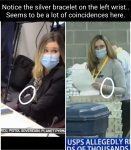

The problem is some judge won't over turn anything or have a revote or eliminate any votes that will change the outcome. They are too invested in how the system works. You don't get invited to things if you over turn Presidential elections.View: https://www.youtube.com/watch?v=2rQnstm6lvw
RT 3:21
Analyst finds thousands of illegal Ga Ballots – files suit
260,944 views
•Dec 5, 2020

One America News Network
1.29M subscribers
An election integrity group filed a bombshell case in Georgia, bolstering the Trump legal team’s case against the election. One America’s Chanel Rion has more from Atlanta.
====
From CRIME - Matt Braynard: FBI Has Requested Vote Fraud Research
Braynard said his team’s work has been and is being presented at hearings and in court filings, “Update: – I will be presenting the VIP findings in person at the #ArizonaHearing. – Work from the VIP has now appeared or will appear in court filings in PA, GA, MI, WI, and AZ, including declarations we collected.”
The OAN clip posted above updates the progress in GA. Perhaps some positive traction.
===
.

MathAnon reverse-engineered the algo Dominion uses to flip the votes, via the use of #VirtualPrecincts!! (And he does it in Starcraft LMAO).
REMEMBER THAT TERM. VIRTUAL PRECINCTS!! I suspect it's going to be HUGE, very, very soon.
Basically - the Dominion software shoots to have a set ratio split (in this case, in favor of Biden). It can be anything, but it is manually set in order to achieve flipping wherever they deem necessary.
They start by having the organic ballots cordoned off in one set. These remain untouched. The system is then designed to create another set, in order to flip what came in organically.
In other words, it looks at what came in already, and then goes "Hmmm, we need X amount of votes to flip this result, and X amount to make it look organic."
To make it look more organic, these votes are divvied up between Virtual Precincts, at set ratios.
These new tallies are then added to the real precincts, in order to flip them wherever they're needed.
This should be quite easy to prove, especially given the fact that Team Trump appears to have access to the original ballot data. It also explains why small numbers of flipped votes are being found in even the smallest counties where there were Dominion machines. The objective was to spread them out so that it looked organic, but the size of Trump's unexpected lead precluded the planned restraint in the largest Democratic strongholds.Election workers on the ground can be in on the scheme and be used to pad the "official numbers" to meet what's needed by the programmers, to make the result appear more organic and legitimate (think suitcases in the middle of the night).
Here's the thing: You can't point to Edison County on your Michigan hand. And not because it's in the Upper Peninsula.
Because, well, there is no Edison County in Michigan.
No, the world doesn't all see it. You should read lib/Dem tweets sometimes. They're crazy. This morning one of them asked for the White House to be fumigated when Trump moves out. Rabid, I tells ya. They will literally shred you if given the chance. They still can't say ugly enough things about people who aren't them.
View attachment 236917

Has the Penn Supreme Court Invited Scrutiny and Rebuke By Relying on "Laches" to Dismiss an Incovenient Complaint?
Laches was used as an excuse to preserve the partisan outcome that the PA Supreme Court liked.redstate.com
Has the Penn Supreme Court Invited Scrutiny and Rebuke By Relying on "Laches" to Dismiss an Incovenient Complaint?
By Shipwreckedcrew | Dec 01, 2020 8:00 AM ET
Late in the day on Saturday the Pennsylvania Supreme Court dismissed with prejudice the complaint filed by GOP Congressman Mike Kelly, failed GOP candidate Sean Parnell, and others, claiming that the “no excuse” mail-in ballot option created by the Pennsylvania legislature in 2019 violated Section 14 of Pennsylvania Constitution. That Section limits “absentee” voting to four narrow categories of “absent electors”. The complaint alleged that because Section 14 is itself a constitutional limit on exceptions to in-person voting, the no-excuse mail-in voting statute worked as a de facto amendment to the Pennsylvania Constitution without going through the required process for amending the Constitution.
Without addressing the merits of the complaint in any fashion, the Court ordered the case dismissed on the equitable grounds of “laches”, finding that the “facial” challenge to the constitutionality of Act 77, the law which created no-excuse mail-in balloting, was a matter the plaintiffs could have brought the time the Act was passed. The Court found a lack of diligence from the fact that they did nothing for more than a year, during which time both a primary and general election took place in which “no-excuse” mail-in voting procedures were employed.
I’m going to make a point here, at the outset, that is somewhat out of place because I want the readers to keep it in mind as they read through the remainder of this article.
The Kelly complaint alleges that Act 77 changed the voting process in Pennsylvania in a manner that amended the Pennsylvania Constitution, without going through the process for making amendments to the Constitution as set forth therein.
The opponents of the Kelly complaint — joined by the Pennsylvania Supreme Court in dismissing the complaint — are possessed by the issue of whether millions of Pennsylvania electors will be “disenfranchised if “no-excuse” absentee voting is declared to be invalid due to the complaint.
What I have not seen commented on — and that failure is why I put this issue here at the top — is that one of the approvals required in the process for amending the Pennsylvania Constitution is that proposed Amendments must receive a majority vote of Pennsylvania electors in a general election.
The voters of Pennsylvania were entitled to have a say in whether the Constitution’s provisions regarding elections and voting should be amended. The General Assembly, Governor, Secretary of the Commonwealth, and County Boards of Election DISENFRANCHISED Pennsylania voters by imposing a “no-excuse” change to the “absentee ballot” provisions of the Constitution without first getting their approval.
Keep that in mind when we get to the issue of “prejudice” as part of the application of the “laches” defense below.
Laches is an “equitable defense” to a meritorious and timely legal claim, where allowing the plaintiff to enforce their claim would be unfair due to prejudice or disadvantage that has resulted from the passage of time, coupled with the “fact” that the plaintiff “sat on their rights.” The United States Supreme Court has described the defense thusly:
So, in fact, there are actually three elements to the doctrine, the first two of which are often conflated — first, neglect on the part of the plaintiff in not asserting the right; second, a lapse of time; and third, circumstances showing prejudice to the adverse party.
The partisan members of the Pennsylvania Supreme Court were never going to allow the Kelly complaint to be resolved on its merits. All seven members of that court must stand for re-election in partisan contests. Any Judge who had voted in favor of the Kelly complaint would certainly be the subject of open partisan warfare by the Democrat Party of Pennsylvania the next time that Judge runs for re-election.
But, the perfunctory nature of the Court’s treatment of the laches issue might bring it some grief in the days ahead. The Court did not treat the issue carefully, nor did it render a decision with acute legal clarity that is necessary when setting aside a meritorious and timely claim based on an equitable defense.
The Court acknowledges that it rendered its decision only on the filings of the parties in the court below. It allowed no evidence to be taken — which is all the lower court intended to do — even though prior decisions of the Supreme Court describe the application of “laches” as a “fact-intensive” inquiry. Its explanation as to why “laches” should bar the claims raised by Kelly is legally inadequate and fails to account for its own decisions reaching the opposition outcome in earlier election cases.
In short, the Pennsylvania Supreme Court protected the partisan outcome of the electoral tally that it favors — nothing more.
A thorough legal analysis of the historical origins and application of “laches” as a common law equitable defense would be the length of an involved law review article. I am not attempting that here. There is case law on just about every side of the application of “laches” so there is plenty of available language from compelling cases that would contradict what follows.
But I begin my criticism of the Pennsylvania Supreme Court with its own words — from two days ago, and from 22 years ago.
In ordering the dismissal of the Kelly Complaint the Court stated:
Let’s stop here. I always enjoy reading the cases cited in support of key legal points made by a party, and Stilp is the first key citation to authority made by the Court in its decision. So, what else did the Court say in Stilp?
Stilp involved a constitutional challenge to a statute passed as part of a multi-state compact on dealing with storage of low-level radioactive waste material. That statute was passed eight years prior to the complaint filed by the Plaintiffs. The challenge to the statute was not based on its substance, but rather on the procedures followed in passing the statute. This became a significant basis for the Court finding that the doctrine of laches — after 8 years of delay — applied as an equitable defense to the Plaintiff’s claim.
Also significant in Stilp was the fact that the application of laches came as part of a motion for summary judgment filed 13 months after the complaint had been filed, and after the parties had conducted extensive discovery, i.e., a “fact-intensive” inquiry on the question.
The parties in Stilp — and the Supreme Court in its decision — distinguished constitutional challenges to the substance of a statute from constitutional challenges to the procedural manner in which a statute was passed. Note the following:
Consider for a moment the “Appellees” in that case — Tom Ridge, Governor of Pennsylania, and the State of Pennsylvania.
Well, the Governor and State of Pennsylvania just argued to the Pennsylvania Supreme Court in the Kelly case, and the Supreme Court agreed, that laches should bar a constitutional challenge to the substance of a statute. That is the exact opposite of what the Governor and State “conceded” 22 years ago. So much for legal and political ethics.
The Court in Stilp also referred to its earlier decision in Sprague v. Casey, also decided in 1988, which the Plaintiffs in Stilp cited for the language “laches and prejudice can never be permitted to amend the Constitution.” But the Court noted in Stilp that the cases cited in Sprague for the proposition that “laches and prejudice” could never be allowed to amend the constitution were cases involving a challenge to the substance of the statutes under attack — not the procedure by which the statutes were passed which was the basis for the challenge in Stilp.
This reference in Stilp to Sprague and those two prior cases further reinforced the distinction between the application of laches to constitutional attacks on the substance of a statute, and constitutional attacks on process. Laches could work to bar the latter, but never the former.
Until Act 77, Joe Biden, and Donald Trump.
But let’s consider further the holding in Sprague because that was an election case. The Plaintiff in Sprague was challenging the decision to place two races for two open judicial positions on the general election ballot in November 1988, which the Plaintiff claimed was in violation of Pennsylvania law. The Plaintiff failed to file his complaint for more than six months after the two races were added to the ballots. A difference in Sprague, however, is that the challenge was filed prior to the election taking place.
Nevertheless, there is key language in Sprague that addresses the issue of lack of diligence and prejudice when it comes to the application of laches to an election contest.
Begin with the fact that the Pennsylvania Supreme Court found that laches did not apply in Sprague even though the Plaintiff did know for many months prior to filing his complaint that the two judgeships were on the ballot, and he did not file his complaint until the eve of the election. But the Court denied the defense of laches to the State Defendants, and their reason for doing so is highly pertinent to the complaint filed by Kelly:
Whaaa??? What???
Did the Pennsylvania Supreme Court say in Sprague that whether legislative action is lawful is a question known to both the plaintiff who challenges the action, and the State Officials who took the action, such that each had a concomitant obligation to diligently seek out an answer regarding that legality?
Did the Court find that State Officials cannot complain about the failure of the Plaintiff to act diligently in that regard if the State Officials had not taken any action on the same matter to validate the legality of their actions?
Yes — that’s exactly what the Pennsylvania Supreme Court said in Sprague. The state officials knew that putting the judgeships on the general election ballot was potentially a violation of state law, and they did not seek judicial sanction for their decision as they could have done. Since they had not been diligent in seeking to defend their action, they could not — in equity — complain about the Plaintiff’s lack of diligence in seeking to challenge their action. “He who seeks equity must do equity.”
The same is true with regard to Act 77. The Legislature and Governor knew Act 77’s introduction of “no-excuse” mail-in balloting was an expansion of the “absentee voting” limits established by Sec. 14 of the Pennsylvania Constitution. Their knowledge is reflected in the fact that they simultaneously advanced separate legislation intended to be a proposed amendment to Sec. 14. They faulted Kelly and the other Plaintiffs for not seeking to make their factual challenge to the constitutionality of Act 77 immediately upon its passage, but they failed to seek a judicial sanction of their immediate implementation of Act 77’s adoption of “no-excuse” mail-in balloting.
That is the precise basis upon which the same Court in Sprague determined that it could not find a lack of diligence on the part of the Plaintiff in that case. .
In dismissing the Kelly complaint, the Supreme Court doesn’t even mention the fact — even though it refers to its earlier decision in Sprague.
But there is a second aspect to the “imprecision” of the Pennsylvania Supreme Court’s decision, which is based on the briefing of the issue to the Court by the State Defendants, and that is the issue of “prejudice.”
As I noted by italisizing part of the language of the United States Supreme Court on “prejudice” that I quoted near the top — the reference is to prejudice to “the respondent” — the defendant in the case.
But the Pennsylvania Supreme Court followed the lead of the briefing by the State — it relies on “prejudice” to voters who would be “disenfranchised” by the remedy sought by the Kelly complaint. It did so without even pausing to consider whether this is appropriate “prejudice” that the Court should take into account in determining whether the defense of laches should apply.
“Laches” is an affirmative defense. Voters aren’t parties to the Kelly complaint and do not assert “defenses” to the claims made. Voters aren’t “prejudiced” by the fact that the case is pursued. There is no outcome yet in the case. There is no “disenfranchisement” unless Kelly prevails on the merits and invalidating all mail-in ballots is the only remedy to be imposed.
Under Pennsylvania law, an invalidly cast ballot is void that shall not be counted in the tally of votes. A ballot is either validly cast according to law or it is invalidly cast — the cause is irrelevant.
There are invalidly cast ballots in every election, and those ballots are set aside. Those voters are disenfranchised. So voter “disenfranchisement” is not an uncommon occurrence in elections.
The fact that there may be 2.3 million such invalid ballots is not the fault of the Plaintiffs bringing the Kelly complaint. By refusing to allow the case to be resolved on its merits, the Pennsylvania Supreme Court is likely violating Pennsylvania law by allowing invalid votes to be included in the final tally.
And this takes me back to the point I made near the top. The voters of Pennsylvania are given a meaningful and necessary role in amending their State’s constitution. A vote of a majority of the electors in a general election is the required final step to adoption of such amendments. The Defendants in the Kelly complaint deprived the Electors of their right to validate the proposed amendment passed by the General Assembly, and they put the amendment in place without their approval.
That was “disenfranchisement” of the Pennsylvania electorate. Who is to say that Pennsylvania voters might have rejected “no excuse” mail-in balloting if not for being disenfranchised.
Let us not kid ourselves about what the real “prejudice” is the Supreme Court was worried about with regard to the Kelly complaint. The real prejudice that concerned the Court was that Joe Biden might not get the benefit of the illicit acts of partisan democrats in control of the state’s elections.
Addendum: There are questions in the Comments about whether the US Supreme Court might take up this case. This is a final judgment of the highest court of the State of Pennsylvania, so it is a decision which is reviewable by the US Supreme Court. But, as a general proposition, the Court only reviews decisions from state courts that implicate federal law. If the decision is viewed purely as a matter of state law, the US Supreme Court generally defers to the highest Court in the State to resolve such issues.
But “laches” is not “state law” — it is an equitable defense to a claim. The “claim” made here involves the process for Amending the Pennsylvania Constitution with regard to the “manner” by which Electors to the Electoral College are chosen.
The Pennsylvania Legislature — and Pennsylvania voters — have placed certain aspects of the “manner” for selecting electors in the Pennsylvania Constitution. The Legislature and the State Actors are alleged to have changed those aspects of the “manner” for selecting electors in a way not allowed by the Constitution. That is a question the US Supreme Court could take up if it so chooses.
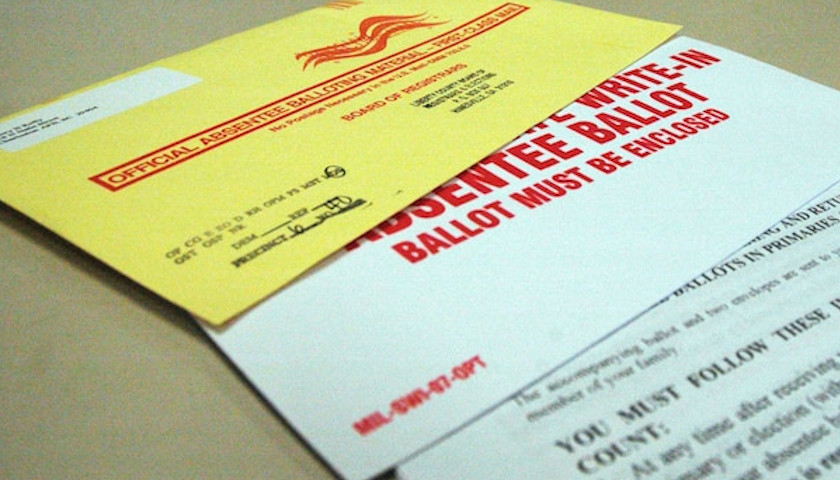
Chief Executive Officer of Facebook Mark Zuckerberg made a donation to the 2020 election efforts, which include a donation to the Center for Tech and Civic Life.Throughout the state, approximately 300 drop boxes were used to collect absentee ballots in the November 2020 general election, authorized under Georgia Election Code Emergency Rule 183-1-14-0.8-.14 passed in July 2020 which states that every absentee ballot drop box collection team “shall complete and sign a ballot transfer form upon removing the ballots from the drop box, which shall include the date, time, location and number of ballots.
The “ballot transfer forms” are a part of the new rule and were created in order to document the chain of custody of ballots collected from drop boxes.
The code also requires that “the ballots from the drop box shall be immediately transported to the county registrar and processed and stored in the same manner as absentee ballots returned by mail are processed and stored. The county registrar or a designee thereof shall sign the ballot transfer form upon receipt of the ballots from the collection team.”
The 2016 election results in DeKalb County, Hillary Clinton received 239,131 votes, Donald Trump received 47,531 and other candidates received 9,209 for a total of 295,871 votes cast.DeKalb County has been selected to receive a $4.8 million grant from the Center for Tech and Civic Life (CTCL). The CTCL grant will allow DeKalb County Board of Registration and Elections to hire more personnel, purchase additional voting and mail ballot sorting equipment, open and operate additional early voting and Election Day locations, ensure sanitization of voting equipment and purchase sufficient personal protective equipment (PPE) for both poll workers and voters.
“These funds will be used to address longstanding operational issues and increase voter safety and confidence in our voting process,” said DeKalb CEO Michael Thurmond.
The county will conduct a comprehensive review of the elections system to ensure that citizens can participate in a fair, free, and convenient elections process.
